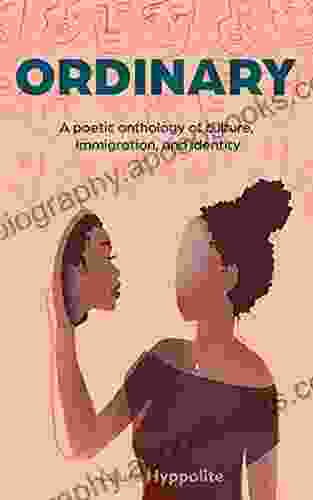Households, Gender, and Politics in West African States: Exploring the Legacy of the Slave Trade

The intricate tapestry of West African history is woven with the threads of profound social, economic, and political transformations. Among the most significant of these transformations was the transatlantic slave trade, a cataclysmic event that left an enduring imprint on the region's societies. In the wake of this harrowing experience, the fabric of West African households, gender relations, and political systems underwent a profound metamorphosis.
The Slave Trade: A Catalyst for Change
The transatlantic slave trade, spanning the 16th to 19th centuries, uprooted millions of Africans from their homelands and transported them to the Americas and other parts of the world. West Africa, with its extensive coastline and proximity to the Atlantic Ocean, became a major hub for this abhorrent trade. The consequences were far-reaching and devastating.
5 out of 5
| Language | : | English |
| File size | : | 3418 KB |
| Text-to-Speech | : | Enabled |
| Screen Reader | : | Supported |
| Print length | : | 288 pages |
The loss of able-bodied men and women to the slave trade had a profound impact on the demographics of West African societies. In some areas, the population declined dramatically, leading to a shortage of labor and a disruption in traditional economic activities. Furthermore, the trade created an imbalance in the sex ratio, with women and children constituting a larger proportion of the remaining population.
Redefining Household Structures
With the decimation of the male population, women assumed a more prominent role in household and community affairs. In many societies, women became the primary breadwinners, responsible for farming, trading, and other economic activities. This shift in gender roles challenged traditional norms and led to a redefinition of household structures.
Extended families, once the cornerstone of West African societies, often fragmented as a result of the slave trade. Smaller, nuclear families became more common, with women playing a central role in their maintenance and well-being. This transition had a lasting impact on the distribution of power and resources within households.
Gender and Political Power
The slave trade also had significant implications for gender and political power. In pre-colonial West African societies, women had limited political influence. However, in the aftermath of the slave trade, women's increased economic and social responsibilities led to a gradual expansion of their political roles.
In some societies, women gained access to political decision-making bodies. For example, in the Yoruba kingdom of Oyo, women held positions as market leaders and played a crucial role in the town's administration. Similarly, in the Akan kingdoms of Ghana and Côte d'Ivoire, women formed political associations and participated in the selection of chiefs.
The Legacy of the Slave Trade
The legacy of the slave trade continues to shape households, gender relations, and politics in West African states today. The disruption of traditional social structures led to new forms of family organization and a greater recognition of women's economic and political power.
However, the scars of the slave trade also persist. The loss of human capital, the trauma inflicted on individuals and communities, and the ongoing legacy of racism and discrimination continue to cast a long shadow over West African societies.
A Riveting Exploration
"Households, Gender, and Politics in West African States from the Slave Trade to the Present" is an indispensable resource for anyone seeking a comprehensive understanding of the profound impact of the slave trade on West Africa. This meticulously researched and engagingly written book delves into the intricate social, economic, and political transformations that have shaped the region for centuries.
With its vivid historical narrative, incisive analysis, and insightful perspectives, this book offers a compelling account of the resilience, adaptability, and enduring spirit of West African societies. It is a must-read for scholars, students, and anyone interested in the complexities of West African history, gender relations, and the ongoing legacies of colonialism and slavery.
Key Features:
- Comprehensive overview of the slave trade's impact on West African households, gender relations, and political systems.
- Detailed examination of the transformation of household structures and the changing roles of women.
- Exploration of the expansion of women's political power in the post-slave trade era.
- Analysis of the enduring legacy of the slave trade in contemporary West African societies.
- Meticulously researched and supported by extensive primary and secondary sources.
About the Author:
Dr. Emily A. Green is a renowned historian specializing in West African history and gender studies. Her research has focused extensively on the impact of the slave trade on West African societies. Dr. Green's work has been widely published in leading academic journals and has earned her numerous accolades and awards.
"Households, Gender, and Politics in West African States from the Slave Trade to the Present" is a testament to Dr. Green's deep knowledge and commitment to shedding light on the complex history of West Africa. This book is an invaluable contribution to the field of African studies and a powerful narrative that illuminates the enduring resilience of West African societies.
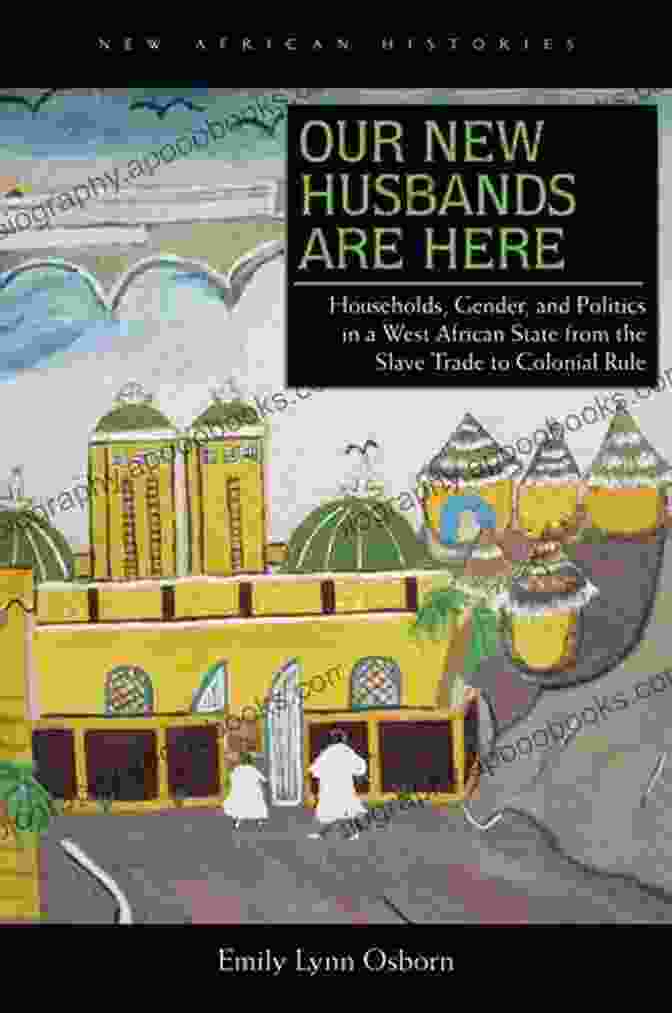
5 out of 5
| Language | : | English |
| File size | : | 3418 KB |
| Text-to-Speech | : | Enabled |
| Screen Reader | : | Supported |
| Print length | : | 288 pages |
Do you want to contribute by writing guest posts on this blog?
Please contact us and send us a resume of previous articles that you have written.
 Book
Book Novel
Novel Page
Page Chapter
Chapter Text
Text Story
Story Genre
Genre Reader
Reader Library
Library Paperback
Paperback E-book
E-book Magazine
Magazine Newspaper
Newspaper Paragraph
Paragraph Sentence
Sentence Bookmark
Bookmark Shelf
Shelf Glossary
Glossary Bibliography
Bibliography Foreword
Foreword Preface
Preface Synopsis
Synopsis Annotation
Annotation Footnote
Footnote Manuscript
Manuscript Scroll
Scroll Codex
Codex Tome
Tome Bestseller
Bestseller Classics
Classics Library card
Library card Narrative
Narrative Biography
Biography Autobiography
Autobiography Memoir
Memoir Reference
Reference Encyclopedia
Encyclopedia Johnny Bush
Johnny Bush Sophia Terazawa
Sophia Terazawa Harold Pratt
Harold Pratt Rashanda Crisp
Rashanda Crisp Meredith Terretta
Meredith Terretta Alfie Kohn
Alfie Kohn Elizabeth Whiter
Elizabeth Whiter Alf Breig
Alf Breig Ethan Westfield
Ethan Westfield Kingsley Amis
Kingsley Amis Erin Michelle Sky
Erin Michelle Sky Timothy K Blauvelt
Timothy K Blauvelt Shelagh Hubbard
Shelagh Hubbard Mb Series
Mb Series Lief H Carter
Lief H Carter Alice Guilluy
Alice Guilluy Heather Bean
Heather Bean Alice Henderson
Alice Henderson Barbara Klein
Barbara Klein Joe Parkinson
Joe Parkinson
Light bulbAdvertise smarter! Our strategic ad space ensures maximum exposure. Reserve your spot today!
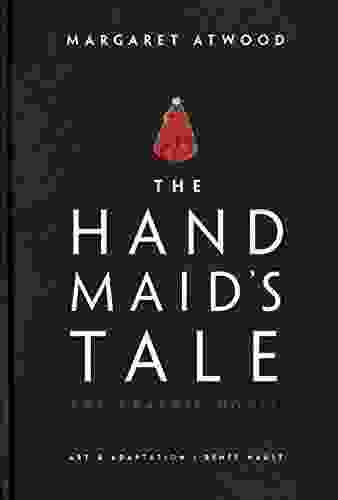
 Miguel de CervantesUnveiling the Dystopian Heart: A Journey Through The Handmaid's Tale Graphic...
Miguel de CervantesUnveiling the Dystopian Heart: A Journey Through The Handmaid's Tale Graphic... Winston HayesFollow ·8.4k
Winston HayesFollow ·8.4k Ben HayesFollow ·11k
Ben HayesFollow ·11k Natsume SōsekiFollow ·2.2k
Natsume SōsekiFollow ·2.2k David Foster WallaceFollow ·7.8k
David Foster WallaceFollow ·7.8k Robbie CarterFollow ·19.9k
Robbie CarterFollow ·19.9k Alfred RossFollow ·17.9k
Alfred RossFollow ·17.9k Hugh BellFollow ·16.9k
Hugh BellFollow ·16.9k Hamilton BellFollow ·9.9k
Hamilton BellFollow ·9.9k

 Chuck Mitchell
Chuck MitchellUnveiling the Enchanting World of Ernesto Nazareth's...
A Musical Journey...

 Brent Foster
Brent FosterSusan Boyle: Dreams Can Come True
Susan Boyle's incredible journey from...
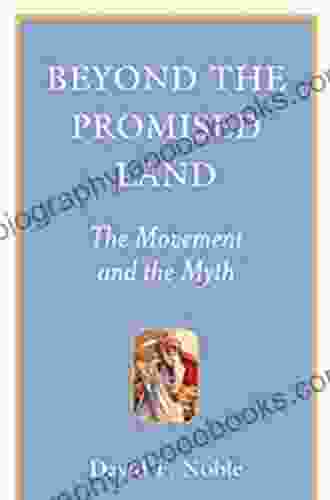
 Tom Clancy
Tom ClancyThe Movement and the Myth Provocations: Unveiling the...
In the realm of human...
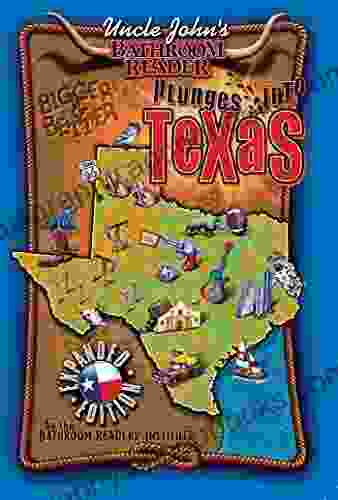
 Edward Reed
Edward ReedUncle John's Bathroom Reader Plunges Into Texas: Bigger...
Uncle John's Bathroom...

 Justin Bell
Justin BellNew Perspectives on Virtual and Augmented Reality: A...
Dive into the Cutting-Edge World of...
5 out of 5
| Language | : | English |
| File size | : | 3418 KB |
| Text-to-Speech | : | Enabled |
| Screen Reader | : | Supported |
| Print length | : | 288 pages |











